About the institute
The Challenge
One of the major global challenges is to feed over nine billion people in a sustainable, safe and healthy way by 2050. This means: we will have to produce “more food in the next four decades than all farmers in history have harvested over the past 8,000 years” (National Geograpic, September 2017). This will happen against a background of mounting shortages of water, arable land and energy, growing cities, and malnutrition and obesity in many parts of the world. At the same time, societal demand for sustainable food production and supply increases and consumers desire safe and high-quality products.
These antagonistic developments call for new and intelligent reforms of our AgriFood production and supply systems in multiple, complimentary ways. One of these appeals to technological innovation and a technology-driven strategy to reform. It requires the horticulture- and agrifood industry and knowledge institutes to collaborate in research and innovation to massively increase agricultural production while decreasing the use of resources such as water and fossil fuels. Much is to be expected from developing, employing and integrating new technologies from highly diverse fields such as Robotics, Sensor physics, Computer Vision, Communication Technology, Geothermal engineering, Material Science, Artificial Intelligence, Genetics, and Crop Modelling.
The Background
Even though The Netherlands is a small and densely populated country, it has remained a leader in the export of agricultural produce. For instance, more than a third of all global trade in vegetable seeds originates in the Netherlands (CBS, 2017). In total, the Horti- and AgriFood domain represent an economic sector with around euro 90 billion in turnover.
Two decades ago, the Dutch government and producers committed to a sustainable agriculture in which we will produce “Twice as much food using half as many resources” (National Geograpic, September 2017). Much progress has since been made. Dutch producers have reduced dependence on water for key crops by 90% and almost completely eliminated the use of chemical pesticides on plants in greenhouses. In addition, since 2009 Dutch poultry and livestock producers have cut the use of antibiotics by 60%.
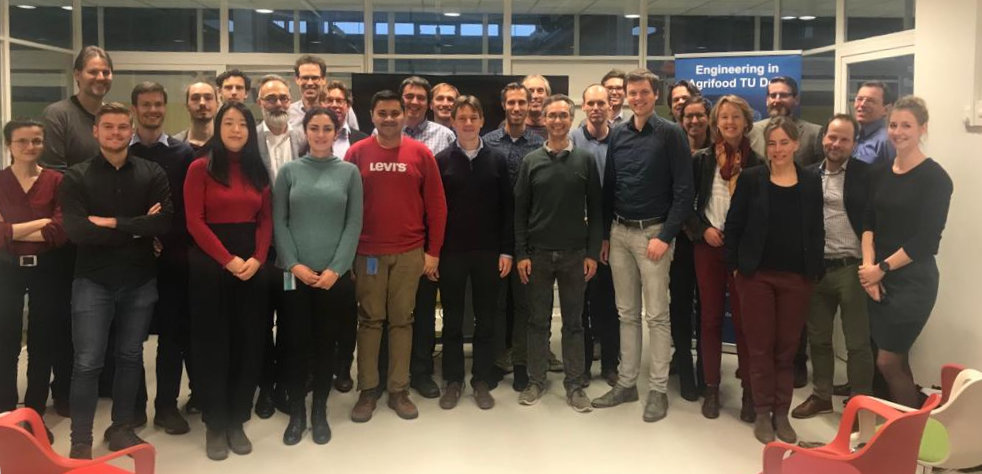
Delft University of Technology is surrounded by a dense cluster of R&D facilities, seed companies, growers, farmers and greenhouse technology companies. It is therefore very well positioned to contribute to high-tech innovation in the Horti- and AgriFood domain. The TU Delft is world-leading in technologies that are most relevant for the mentioned intelligent reforms in the AgriFood domain. Think of high-tech sensors and machine learning for climate and energy control of greenhouses, computational biology for phenotyping, smart systems for sustainable use of energy and residual streams, logistics & digital chains for safe and efficient supply chains and robotics for harvesting, sorting ad food-processing, and drones for monitoring pest and diseases, to name a few.
Dutch farmers have become expert in getting the most out of every hectare. Increasingly, they’re doing so sustainably. Raising yields tenfold in two generations, while at the same time using less water, fewer pesticides, less fertilizer and emitting less carbon.
Sir David Attenborough
The Contribution
TU Delft AgTech Institute aims to contribute to innovation in AgriFood technology. It will help to bring engineering knowledge and expertise to the technological challenges of the necessary transition in AgriFood. With support of five TU Delft faculties, and partners such as Rabobank, Innovation Quarter and the Dutch Topsectors Horticulture and Starting Material and Agrifood, the institute has the ambition to build a strong, coherent and complimentary research portfolio. Moreover, it builds on an already significant number of large research programs (4TU Plantenna, 4TU Pride & Prejudice, Flexcraft, Synergia) and an impressive resume of public-private partnerships with leading companies. In addition, the institute participates in various triple helix associations, through which ties will be strengthened with (local) governments, businesses and other knowledge institutions to give direction to collective and individual research, development and education agendas. Through this extensive network, the institute creates added value by acting both internally and externally as a point of contact for expertise in the AgriFood domain.
Team
The TU Delft AgTech team is led by the Scientific Director and the Business Developers. The team is supported by an Academic Board, with representatives of more than 17 research departments within 5 faculties. The management team is responsible for the business development and management of the institute:
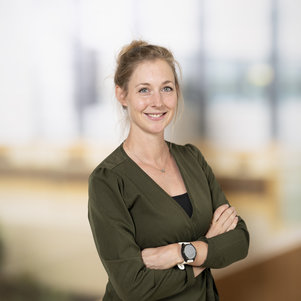
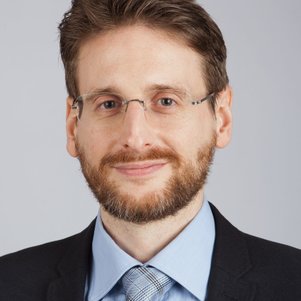
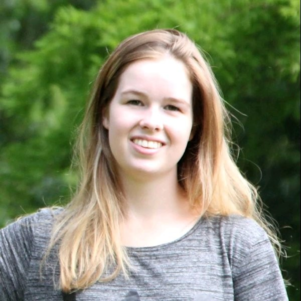
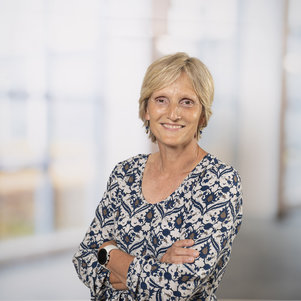
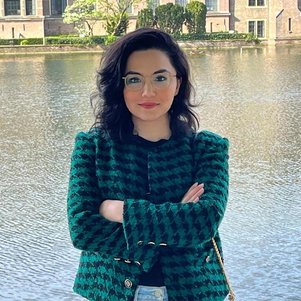
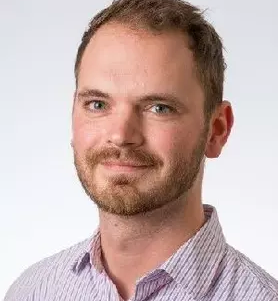
Liselotte de Vries, as Business Developer for TU Delft AgTech Institute, aligns collaboration between researchers and the industry. With a MSc in International Development from Utrecht University, a BBA in Int. Business and having worked for UTZ Certified and Sustainable Rice Platform (in Bangkok), Netherlands Water Partnership and now TU Delft, creating crossovers between AgriFood and high-tech systems is her daily ambition. Feel free to contact Liselotte to discuss collaborating with TU Delft’s researchers, students and fieldlabs in the field of AgTech!
Tamas Keviczky received his MSc in Electrical Engineering from the Budapest University of Technology and Economics in 2001, and his PhD from the Control Science and Dynamical Systems Center, University of Minnesota in 2005. Between 2005 and 2007 he held postdoc positions at the University of Minnesota and in Control and Dynamical Systems at the California Institute of Technology. He is currently a professor with the Delft Center for Systems and Control at Delft University of Technology.
He is an Associate Editor of the IEEE Transactions on Automatic Control, and served in the same role for Automatica between 2011-2017. He was a corecipient of the AACC O. Hugo Schuck Best Paper Award for Practice in 2005. He was a member of the winning team (Automatoes) in the 2nd Autonomous Greenhouse Challenge in 2020. Since 2020, he has been leading a work package on intelligent control and decision making in the NWO Crossover project "System change for new ecology-based and resource efficient growth with high tech in agriculture" (SYNERGIA). He has also been a co-leader in the NWA-route "Duurzame productie van gezond en veilig voedsel" on the gamechanger topic "High-tech and ICT in Agriculture", since 2021. In 2023, he was appointed as Scientific Director of the TU Delft AgTech Institute.
Rian Rijnsburger has a background in economics and in epidemiology. She received her PhD in Public Health in 2005, after which she worked for several years as a post-doc both in the field of internal oncology, and in the field of early health technology assessment of new medical technologies. She is an experienced innovation manager in health & technology, and fulfils a strategic and overall coordinating role in the preparation of major collaborative grants (national and international) and in building and financing of (public-private) consortium projects. She engages with external contacts like partner institutes, societal stakeholders and relevant agencies to anticipate new developments and to help in building consortia. Since 2023 she joins the AgTech team as an innovation manager. In that role she supported the scientific leads in attracting private companies co-funding the Crop Alert Perspectief proposal (round 2022/2023).
Melissa Spitteler is Innovation Coordinator at the TU Delft AgTech Institute, where she plays a role in facilitating the collaboration of the institute both within and outside the TU Delft community. After completing her master’s degree in bioinformatics at Wageningen University, she has gained experience working in a vegetable breeding company, where she contributed to the development of new and improved vegetable varieties. In her current role at the AgTech Institute, she is dedicated to bridging the gap between pioneering researchers and industry professionals. By fostering collaboration and facilitating knowledge exchange, her objective is to propel the agricultural and horticultural sectors towards innovative solutions.
Narges Yoesefi, a project manager with previous experience at Leiden University and Erasmus University, holds a Master’s degree in Public Administration and a Bachelor’s degree in International Relations and Organizations from Leiden University. She currently serves as project manager for CropXR. She finds the promotion of sustainable agricultural production and the reinforcement of global food systems’ resilience critically significant in the face of escalating climate change challenges.
Leonie Versteeg is the marketing and communications advisor at the AgTech Institute. Her ambition is to connect researchers and companies in the agricultural domain by making it clear for both parties why this is so helpful and how the AgTech Institute can play a role in this. After studying journalism, she switched to marketing and communications after a few years of working as a journalist. She is an analytical and strategic marketing and communications advisor and has an expertise in websites and online marketing. She worked for various organizations, such as UWV, the Ministry of Social Affairs, Openbaar Ministerie, Rijksdienst voor Identiteitsgegevens, Stichting ALS, Babboe and TNO. In addition to the AgTech Institute, she currently also works for TU Delft fieldlab RoboHouse.
Bas Verbruggen is Research Funding Advisor at the TU Delft AgTech Institute. He is keen help the AgTech community with acquiring funds for their research projects by spotting opportunities for funding, finding the right funding schemes for research ideas and helping in the writing and application process. Prior to joining TU Delft he worked at the Applied and Engineering Sciences domain of NWO, the Dutch Research Council, where he was responsible for various funding programmes on AgTech themes and the Veni personal grants. This gives him strong experience on both the funder and applicant side of the process. He has a research background in bio-informatics, having worked on viral infections, cancer research and environmental pollution of pharmaceuticals. Feel free to contact Bas to discuss funding options.
